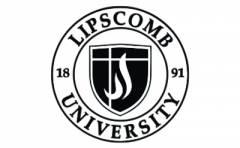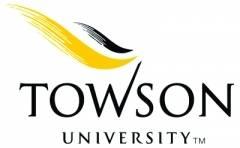Best Educational/Instructional Technology colleges in the U.S. 2025
Best Educational/Instructional Technology colleges in the U.S. for 2025
Lipscomb University offers 1 Educational/Instructional Technology degree programs. It's a medium sized, private not-for-profit, four-year university in a large city. In 2023, 1 Educational/Instructional Technology students graduated with students earning 1 Master's degree.
Boston College offers 1 Educational/Instructional Technology degree programs. It's a large, private not-for-profit, four-year university in a small city. In 2023, 5 Educational/Instructional Technology students graduated with students earning 5 Master's degrees.
University of Maryland-College Park offers 1 Educational/Instructional Technology degree programs. It's a very large, public, four-year university in a large suburb.
University of Georgia offers 6 Educational/Instructional Technology degree programs. It's a very large, public, four-year university in a midsize city. In 2023, 59 Educational/Instructional Technology students graduated with students earning 33 Certificates, 22 Master's degrees, and 4 Doctoral degrees.

New York University offers 2 Educational/Instructional Technology degree programs. It's a very large, private not-for-profit, four-year university in a large city. In 2023, 41 Educational/Instructional Technology students graduated with students earning 40 Master's degrees, and 1 Doctoral degree.

University of Michigan-Ann Arbor offers 1 Educational/Instructional Technology degree programs. It's a very large, public, four-year university in a midsize city. In 2023, 9 Educational/Instructional Technology students graduated with students earning 9 Certificates.
University of North Florida offers 2 Educational/Instructional Technology degree programs. It's a large, public, four-year university in a large city. In 2023, 8 Educational/Instructional Technology students graduated with students earning 8 Master's degrees.
Towson University offers 6 Educational/Instructional Technology degree programs. It's a large, public, four-year university in a small city. In 2023, 67 Educational/Instructional Technology students graduated with students earning 51 Master's degrees, 14 Certificates, and 2 Doctoral degrees.
Florida State University offers 2 Educational/Instructional Technology degree programs. It's a very large, public, four-year university in a midsize city. In 2023, 75 Educational/Instructional Technology students graduated with students earning 54 Master's degrees, and 21 Doctoral degrees.
University of Hawaii at Manoa offers 2 Educational/Instructional Technology degree programs. It's a large, public, four-year university in a large city. In 2023, 22 Educational/Instructional Technology students graduated with students earning 11 Master's degrees, and 11 Doctoral degrees.
Find local colleges with Educational/Instructional Technology majors in the U.S.
Master's Degree in Educational/Instructional Technology
Whether you have a degree in education, business, technology, or another related field, an MEd in educational technology is a great way to build on your skill set and gain access to new career opportunities. Technology continues to play an increasingly important role in all aspects of our lives and it is transforming the traditional classroom. From K-12 schools to universities and corporate training rooms, different forms of technology are enhancing the learning experience and preparing students for the future. If you have an interest in emerging technology and pedagogy, then a master’s in educational technology may be worth considering.
What is a Master’s Degree in Educational Technology?
An educational technology master’s program will teach you how to integrate new technology into the classroom in order to improve the learning experience. Technology continues to evolve and play a larger role in how we communicate, learn, and operate in the world. The ability to use these tools in the classroom will not only familiarize students with emerging technology, but also enhance the entire learning experience.
For teachers, a master’s in educational technology provides them with the knowledge they need to effectively use technology in the classroom. Having a proficiency in the latest technology is an invaluable tool when it comes to competing in the job market. These skills can also easily be used outside the classroom and will translate well in the corporate world.
What Can I Do with a Master of Educational Technology Degree?
Earning a master’s in education technology will not only result in a higher salary, but it also opens the door to a variety of opportunities. While some teachers take their new knowledge into the classroom, others pursue roles as pedagogy specialists and become consultants, curriculum designers, and trainers. Graduates also work with administrators and teachers to help them use technology in schools.
The need for educational instruction around technology goes well beyond the boundaries of the classroom. With a skill set that includes being able to plan and assess projects and integrate technology into a variety of environments, you can work for government agencies, corporations, and nonprofits. There is a practically limitless demand for professionals with a deep understanding of how new technology can be used to facilitate learning and support projects.
With the help of some additional professional certifications, a master’s in educational technology can also lead to positions as a software designer, network manager, or computer systems analyst. Continuing education will only further expand employment possibilities and help you take your degree beyond the field of education.
How Long Does an Educational Technology Graduate Program Take?
Earning a Master’s in Educational Technology requires the completion of 36 credit hours. For many students, it will take 2-3 years to finish all the necessary credit hours. Many programs allow you to work at your own pace and vary the number of credit hours you take each semester. You may also be able to expedite your degree by taking additional classes over the summer.
In addition, some institutions offer accelerated programs, ideal for students who plan to take classes full-time. With this schedule, you could earn a master’s degree in around 12 months.
Many programs also require a capstone-type project as part of the degree. The amount of time spent on this project could also extend the time it takes to complete the program. Fortunately, there are different options available, so you can find a program that will accommodate your lifestyle and help you meet your specific goals.
Courses in Educational Technology Programs
Every Master’s of Educational Technology program starts with core, foundational classes. Once you successfully complete these courses, you begin to explore other topics that may help you on your career path. You can choose different specializations and engage in advanced studies that will prepare you for your chosen field. Core classes typically include:
- Foundations of Instructional Technology - As part of this class, students learn about the history of instructional technology, where it stands now and where it may be in the future. Students also begin to explore different professional philosophies and develop their own ideas and approach to instruction.
- Developing Instructional Materials - In this class, students participate in research and hands-on projects that will help you develop a deeper understanding of instructional best practices. Through individual and group projects, learners create instructional materials and deliver them to the class. This is an especially useful class for anyone who is looking forward to a career as a consultant or trainer.
- Instructional Computing - Students learn about new technology, how we interact with it, and how it influences individual experiences and shapes perspectives. The course also explores available mobile tools, virtual spaces and social media platforms, and how technologies can be used in lessons. Additional course content will include theoretical discussions, research and project implementation best practices. The main objective is to better understand the capabilities of technology and education.
- Managing Educational Projects - This is a fundamental class for anyone who wants to take on a leadership role. Students learn to assess risk, control costs, and set a schedule and budget for educational projects. The course also walks through the process of monitoring a project after it has been implemented and teaches valuable personnel management skills. Be prepared to participate in simulation exercises and examine case studies.
- Blended Learning Environments - Through discussion and projects, students learn about pedagogical theory and best practices for designing curriculum that blends online and traditional learning environments. This is an essential course, no matter how you plan on utilizing your degree.
Skills Learned in a Master of Education Program
Throughout the course of your studies, you develop the skills necessary to effectively integrate technology into the learning experience, design coursework, offer computer-based instruction and utilize a variety of digital tools. You also develop your own pedagogical philosophy and framework that will guide your approach to teaching and training others.
By the time you graduate, you can fully assess students and understand learning objectives so you select and implement the best tools, platforms and technology.
All of these skills will help you secure positions in your chosen field and/or prepare you for further studies and a more advanced degree.
Master’s in Education Accreditation
Students should look for programs that have received a national or regional accreditation. There are six organizations that can approve this designation, and an accredited program has met and maintained certain educational standards set by these organizations. If you choose an unaccredited program, your degree may be viewed unfavorably by employers and other professionals, and you miss out on valuable networking opportunities. Unaccredited programs also disqualify students from receiving federal financial aid.
Admissions Requirements for Master's in Educational Technology Programs
Most programs will have similar requirements that include:
- Bachelor’s Degree - Applicants are required to hold a bachelor’s degree from an accredited institution. Ideally, the degree will be in education, business, information technology, or another relevant field.
- Minimum GPA - This requirement will vary by program, but keep in mind that a higher GPA will improve your chances if gaining admission to your ideal program and it can influence whether you are eligible for fellowships and other forms of financial aid. In some cases, the minimum GPA may be 2.5, although it is common to require a 3.0 or above.
- Professional Experience - Again, this requirement will vary, but having some teaching experience under your belt will improve your chances of entering a master’s program. Be sure to detail your experience and skills on your resume.
Earning an Online Educational/Instructional Technology Degree
Most master’s in educational technology degrees can be earned online, which is perfect for professionals who want to continue to work while completing their studies. While the exact courses you take may vary slightly depending on your concentration and what field you anticipate going into, most programs will follow a similar curriculum. Programs teach you to assess student and teacher performance based on predetermined objectives and to design and implement technology driven initiatives that enhance the learning experience.
Online Master’s Degree in Educational Technology vs. On Campus Programs
Online programs offer the convenience of being able to take courses while you continue to work. If you aren’t in a hurry to complete your degree and you plan on taking a couple courses at a time, online programs tend to be more flexible.
In many cases, you can complete practicum requirements at your current employer or at other local organizations. An online degree also means that you can attend practically any college or university. You may also be able to save money since the tuition price may not be based on where you live and you won’t have to worry about paying for campus housing or commuting.
The main benefit of choosing an on-campus degree is the regular interaction with fellow students and instructors, hands-on experience, various research opportunities, and on-site school resources. In addition, you may be able to complete your degree faster and start your career sooner.
Educational/Instructional Technology Career and Salary Overview
Educational Technology Career Resources
- American Educational Research Association - This professional society works to advance the field of education by advocating for new government policies, hosting local and national conferences and providing a virtual learning center. Participants will also enjoy access to professional development opportunities and fellowships.
- The eLearning Guild - Education professionals can use this resource to access a research library, networking events, training courses, a job board and various conferences.
- Online Learning Consortium - The OLC works to foster collaboration among professionals who are working to improve digital education. You can take advantage of professional development opportunities, workshops, webinars and a variety of other programs.
Educational/Instructional Technology FAQ
List of all Educational/Instructional Technology colleges in the U.S.
| School | Average Tuition | Student Teacher Ratio | Enrolled Students | |
|---|---|---|---|---|

|
Lipscomb University Nashville, TN | 21 : 1 | 5,047 | |

|
Boston College Chestnut Hill, MA | 17 : 1 | 15,280 | |

|
University of Maryland-College Park College Park, MD | 21 : 1 | 40,813 | |

|
University of Georgia Athens, GA | 18 : 1 | 41,615 | |

|
New York University New York, NY | 18 : 1 | 57,335 | |









